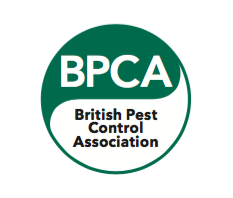Bed Bugs: The Uninvited Guests This Holiday Season
In Pests

Whether you’re travelling to visit friends and family, or hosting relatives at home during this holiday season, the last thing you want to deal with is uninvited guests. No, we’re not talking about your Auntie Shirley. We’re talking about bed bugs.
Bed-bugs are great hitch-hikers. Hiding in clothes, suitcases, furniture and other belongings, bed bugs can travel from one destination to another with ease. It is therefore fairly easy for visitors to unknowingly bring unwanted guests into your house.
Why are bed bugs a problem?
Although bed bugs do not transmit diseases to humans, their bites can be painful. Bed bugs feed on the blood of mammals, specifically humans. Their bites leave itchy raised bumps of the skin that can cause irritation. These can potentially lead to secondary infections and have been known to cause severe reactions in some people.
Prevention
When travelling…
- Avoid unpacking suitcases on the bed.
- Check your hotel room or overnight accommodation for bed bugs. Despite the name, bed bugs can breed in other areas too. Check bed frames, headboards, mattress seams, bedside cabinets, curtains, skirting boards and other furniture for signs of infestation.
When at home…
- Wash and tumble-dry clothing and bed sheets on high heat – bed bugs struggle to survive in high temperatures and washing will help to eliminate the bugs and their eggs.
- Inspect luggage for any signs of infestation.
Spot the signs
- Small dark spots of blood, known as ‘fecal pellets’, are produced after feeding and may be present on your mattress.
- Dark stains on your bed could indicate bed bug excretion.
- Live adult bed bugs – bed bugs are very small and resemble small flat discs, and are tan or light brown in colour. When they feed on blood they will become darker and increase in size.
- Shedded ‘skins’ – bed bugs have 5 different nymph stages of development, and at each stage they shed their exoskeleton.
- Bites which often appear overnight, located predominantly on the neck, hands, arms and legs is a sign that you may have a problem.
Think you may have bed bugs?
No one wants their homes crawling with bugs at any time, let alone before Christmas. Fortunately, PEST UK can help. To treat bed bugs, we use a residual insecticide that is sprayed onto walls, ceilings, the bed frame, mattress, furniture and surrounding areas in the infected room. All our insecticides are biodegradable, almost odourless, non-tainting and do not corrode or stain. The process is guaranteed after two sprays, providing all the prior preparation is done beforehand. Because PEST UK have local offices, we can get out to you as soon as the preparation is done, eliminating your bed bug problem in time for Christmas.
Find out more about bed bug preparation and treatment here.
If you think you may have an infestation or would like some advice, call us on 0330 100 2811 or email us at services@pestuk.com.
PESTUK

PESTUK are full members of the BPCA, the governing body for pest control in the UK. Using a BPCA member company ensures you have a qualified, fully insured company treating your pest problem. Therefore, with PEST UK you can have peace of mind knowing that you are dealing with a professional pest control service that is near you.
PESTUK have offices in Bracknell, Edgware, Salisbury, St Albans, Stevenage, Swindon, Thame, Wantage, Ware, Watford, and Woking.
For an updated price list for all of our services please click here.

